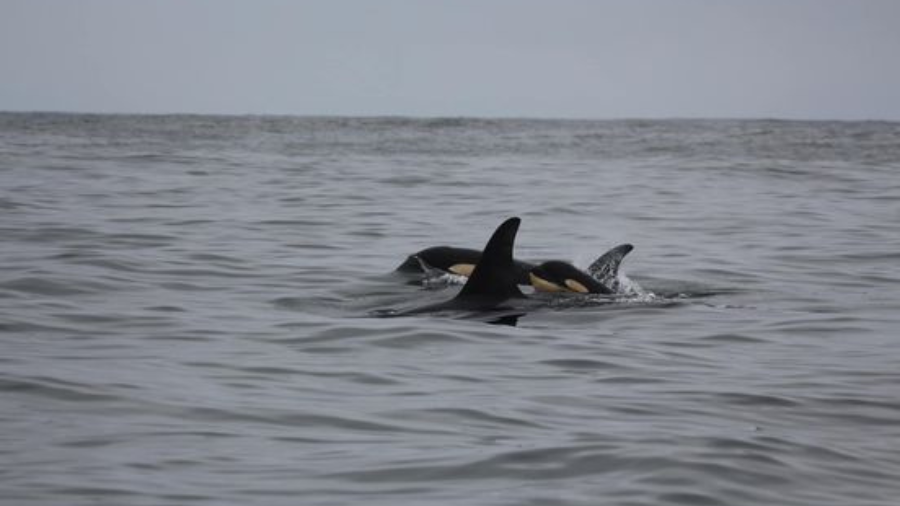Young orca calf spotted with pod of Southern Resident killer whales
Jun 23, 2023, 4:50 PM

Orca calf spotted alongside Southern Resident killer whales (Photo courtesy of Center for Whale Research)
(Photo courtesy of Center for Whale Research)
There’s encouraging news for the Puget Sound region’s endangered Orca population as is sharing photos of a calf believed to be traveling with the Endangered Southern Resident Killer Whales’ L pod off Tofino, British Columbia.
If researchers can confirm what the photos appear to show, it would be the first new calf for the L pod since 2021.
The Center’s Research Director, Michael Weiss, estimated the calf is more than three weeks old
“The calf is kind of filled out. It doesn’t have the wrinkly look that you get from a brand new calf, but it is still quite young,” Weiss told ����Xվ Newsradio.
New law requires boaters to stay further away from Southern Resident orcas
The baby is seen next to an adult whale, but Weiss claimed they don’t yet know who its mother might be.
“These whales do babysit, so until we can get out there and see who it’s consistently traveling with, we don’t know who the mom is, yet,” Weiss added.
Researchers will need to wait until the whales venture closer to the Puget Sound region to get a closer look and confirm their findings.
“Our study area is mostly from eastern Juan de Fuca Straight into the San Juan Islands and up into the southern Georgia Straight,” Weiss said.
Researchers who monitor the endangered whales point out that they travel a wide range, with some whales spotted from southeast Alaska to Monterey Bay, California.
“They have a huge, huge area that they cover over the course of a year,” Weiss said.
The whales may also be expanding the area they travel in the search for food. In particular, the decline in Chinook salmon that has threatened the whale’s existence. Unlike Transient or “Bigg’s” killer whales, the Southern Resident doesn’t eat other marine mammals.
“Several populations of Chinook salmon on the West Coast of the United States and Canada are endangered themselves,” Weiss stated. “So, you have an endangered species relying on another endangered species to survive.”
Noise from boats that interfere with their ability to find food and pollution have also contributed to whales’ decline.
There are only 73 Southern Resident Killer Whale’s left in the wild and one — Tokitae, also known as “Lolita” — is at the Miami SeaQuarium waiting to return home to the Puget Sound.
More from Heather Bosch: Beloved orca will return to Seattle after performing for 50 years
It’s why researchers are so excited about this young whale sighting and why they’re so eager to get a closer look.
“Every single addition we can get to this population is huge,” Weiss said.
Heather Bosch is an award-winning anchor and reporter at ����Xվ Newsradio














